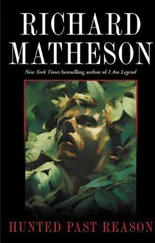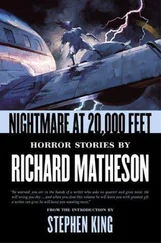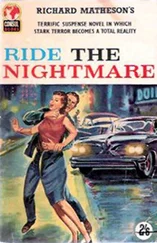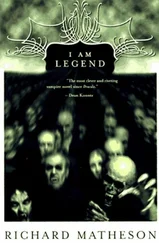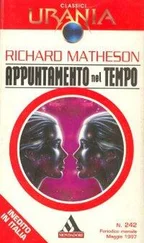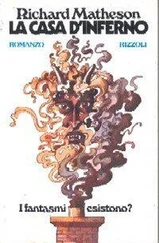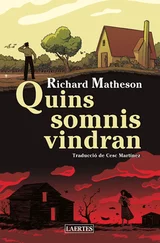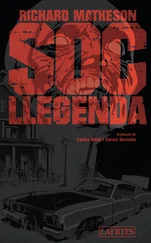The Reverend Bond looked at Benton, mouth slightly agape. Then a sudden look of relief came over his face and he beamed at both of them.
“I’m so glad,” he said quickly. “I didn’t believe the story at all and yet . . .” He clucked and shook his head sadly. “Once the poison is put in one’s mind, one is hard put to find the adequate antidote of reason.”
Benton glanced at his wife. “I know,” he said, trying not to smile. “That old suspicious poison.”
He sat down on the arm of the chair. “All right now,” he said seriously, “who told you this story, Reverend? Robby Coles?”
“No, as a matter of fact it was Louisa’s aunt, Miss Agatha Winston,” Bond said. “And . . .” he gestured with his hand, “I might add, were this not a situation of such potential gravity, I would not, for a moment, betray a confidence. You understand.”
“It’ll go no further than this room,” Benton said. His mouth hardened. “I wish I could say the same for this damned story.”
“John,” his wife said quietly. He glanced down at her, then up at the Reverend with a rueful smile. “Pardon,” he said, then became absorbed in thought. “Agatha Winston,” he mused. “Do I know her?”
“She owns the ladies’ clothes shop in town, doesn’t she?” Julia asked.
“That’s correct.” The Reverend Bond nodded. “She came to my house last night and told me that . . . well . . .” He cleared his throat embarrassedly.
“It’s quite all right, Reverend,” Julia told him.
“Thank you,” Bond replied. “To be terribly blunt then, Miss Winston said that your husband tried to arrange for an immoral meeting with her niece. Again,” he added quickly, “I would not say such a thing in your presence were I not convinced that the story is untrue.”
When Bond had repeated what Agatha Winston had told him, Benton’s right hand closed angrily in his lap and his face grew suddenly taut. He sat there stone-faced until Bond had finished talking, then he said in a flat, toneless voice, “And did she say who told her this story?”
Bond nodded his head. “Yes,” he answered, “she said that her niece, Louisa, told her. Or, rather, that she had heard the gossip in town and then checked with Louisa to verify the story.”
“And Louisa said it was true,” Benton said disgustedly.
Bond gestured with his hands and looked helpless. “That is what she said,” he admitted.
Benton exhaled heavily. “Well, it’s not true,” he said. His eyes raised to Bond’s. “Do I have to tell you it’s not true?”
“I would like you to,” Bond replied, meeting Benton’s gaze steadily.
Benton’s mouth tightened. “It is not true,” he said slowly and Julia put her hand on his with an abrupt movement.
Bond’s lips raised in a conciliatory smile. “I’m sorry,” he said. “It wasn’t that I believed you were guilty. It was just that . . . well, I felt that the situation called for such a definite statement.” He leaned forward. “Very well,” he said, “we’ll say no more of that. What’s important now is ending this gossip before it does any more harm. I . . . understand there was some physical conflict yesterday.”
Benton nodded then, briefly, told the Reverend about how Robby Coles had come into the Zorilla and started a fight.
“And this was the first you heard of the matter,” Bond said.
“That’s right,” said Benton. “The first.”
“I see.” Bond nodded as he spoke. “I . . . imagine, then, that it all began with Louisa telling Robby that . . . telling him what she did tell him,” he finished hastily.
“But why?” Benton asked, irritably baffled. “Does it make any sense?”
Julia smiled a little at the Reverend Bond and he repressed an answering smile. “He really doesn’t know,” Julia said.
Omar Bond nodded slowly. “I believe it,” he said. “Yes, I believe that firmly. Your husband is not the sort of man who indulges himself in false modesty.”
“Know what?” Benton asked. “What are you two talking about?”
“What I said to you yesterday, John,” Julia said. “Louisa Harper is in love with you.”
Benton looked pained again. “Oh . . . come on, Julia,” he said.
“I think the assumption is justified,” said the Reverend. “You see, Mister Benton, you represent something to the young people of this town. In . . . all honesty,” he went on reluctantly, “I must admit that I’m not sure what you represent to them is a . . . healthy thing. Needless to say, I do not, for a moment, think that you still are what they conceive you to be. No, I—”
“What’s that, Reverend?” Benton interrupted. “What do they think I am?”
Bond looked embarrassed. “A . . . fearless . . . and a very dangerous man,” he faltered. “Mind you, I’m only assuming now. But I think that . . . well, they regard your skill with a gun as one of paramount achievement.”
“But I don’t wear a gun in town,” Benton said stiffly. “They’ve never even seen me with a gun on.”
“They’ve never seen John Hardin either,” Bond countered, “but they know what he’s done.”
The Reverend’s face grew sadly reflective. “It was people like this who . . . lined the roads for miles when John Hardin was taken to prison. People who waited for just one momentary glimpse of a man who had killed others with guns.” Bond shook his head grimly. “It makes no sense—to me, at any rate—but it is so, let us admit it freely; now. Your reputation as a Texas Ranger is immense, Mister Benton. It caused a, perhaps, foolish young girl to become enamored of what she conceived you to be. It caused her, in a moment of . . .” he gestured searchingly with his hands, “. . . shall we say, a moment of un thinking delusion, to pretend out loud; unhappily, to pretend in the presence of her intended husband. Perhaps she meant nothing by it; I’m sure she didn’t. It was a girlish whim, I imagine, perhaps done to make her intended husband jealous of someone—anyone. Young girls are . . . often misled by their feelings.”
Bond leaned back, hands clasped in his lap.
“And I believe it was your reputation—exaggerated as it may be—that caused this event. Believe me, sir, I’m not accusing you of anything but . . . perhaps this is, in some measure, an unfortunate result of the life you formerly led.”
“Reverend, is that . . . well, fair ?” Julia asked. “My husband worked for law, for order. If he killed, it was not for the sake of killing; it was because it was his job.”
“My dear lady,” said Bond warmly, “I would not, for a moment, accuse your husband of being anything that he is not. That he, voluntarily, chose to put aside violence and live as a peaceful citizen, speaks wonderfully for his character. It is just that . . . well, I must repeat, I fear, were it not for the past events of Mister Benton’s life, this situation would not have occurred.”
“Well, this is getting us nowhere,” Benton said, gruffly. “All right, maybe this Harper girl made up the story. But you said her aunt checked with her. Why didn’t the Harper girl tell the truth then ?”
Bond smiled gently. “You are not acquainted with her aunt, Mister Benton. Miss Winston, though, I cannot deny, a loyal Christian, often shows in her dealings with others more hasty righ teousness than understanding. And her niece is very sensitive, very retiring. Cornered . . . frightened, perhaps, she would hardly have confessed that she . . . pretended, shall we say. You can understand that.”
“I can understand it,” Julia said. “John, you mustn’t be angry with her. I’m sure she’s more frightened than anything else with the gossip she’s started.”
Читать дальше


